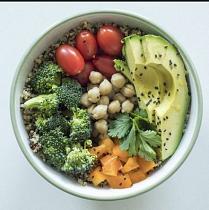Becoming vegans will safe planet
Veganism must become a political movement. At the moment it is nowhere near that, anywhere in the world. And the fault lies with vegans themselves.
What is the current state. Capitalism has made it easy for every human to literally eat up the world. Every animal species, every forest, every ore in the ground every fish in the sea, has been turned into trivial things to fuel an insatiable greed. And, as soon as one species becomes extinct we find another one. Our oceans are now full of jellyfish who have filled the emptiness caused by taking a billion fish out of the ocean every month. Hugely poisonous and of no edible value, 7 nations have, nevertheless, got together to see what they can turn jellyfish into. As mammals and birds dwindle, the food companies are promoting insects as the “new” protein.
What can a vegan do?
To begin with, stop buying. Everything you buy, vegetarian or non-vegetarian, has its consequences and impact. Forests are cut down to grow cotton for T Shirts and soyabean.
Each death of a tree means the death of thousands of animals and birds. Cotton is grown with the worst pesticides in the world. Those destroy millions of lives annually, and poison the waters. So, what is ethical ? Wearing cotton ? Or not wearing silk because it boils thousands of silk worms alive ? Choices have to be made intelligently, and the best choice is to keep your wants to a bare minimum. You do not need more clothes, shoes, or cosmetics. You do not need facecream. Vegan- or non-vegan- consumer capitalism is responsible for the destruction of the entire natural world. Veganism means addressing all these issues. Less consumption—not more—should be part of every real vegan’s mantra.
Not only are you creating more wealth for the wrong companies, but you are also adding to the burdens on the same earth you wish to save. Vegans who believe in eating/using/buying/exploring the exotic are simply another exploitative group. People who drop lipsticks made at home, to buy chia butter lipsticks, have not factored in how much it costs in terms of fuel to get the chia butter to the factory. And no one is checking whether pesticides and chemical fertilizers have been used to grow the chia. So, the halo that the vegans have put on their own heads is uncalled for. European companies have replaced chicken wings with jackfruit wings for vegans. But jackfruit goes all the way from Asia to England.
Vegans, who believe that backpacking to the wildernesses is about sustainability, are fooling themselves. Eating carrots while entering the last domain of animals and birds, defecating and urinating, spreading germs and clearing pathways for themselves- this is not veganism. This is consumerism.
Secondly, vegans must realize that they should not confuse veganism with all the other labels. Unfortunately, it is competing: not with meat, milk and leather, but with “organic” “locally sourced”. Most retailers say that they have stopped advertising “organic” and replaced it with “vegan”. It is hopelessly confused with healthy, raw food and gluten free. The advertising agencies are toying with your head, and making all the wrong mental associations, by providing completely unnecessary items with the vegan label. By making vegan products look young and vibrant , they have created an image that associates vegan with health.
Social media blogs are about how pretty the food should be, rather than where it comes from. You cannot eat avocados from Mexico or Kenya, beans from Brazil, blueberries from the US and goji berries from China, and be vegan.
Mexico makes more money from exporting avocado than it does from petroleum, and is cutting down its forests to make way for planting more avocado trees. So what did the vegan achieve? Veganism is not a casual consumer choice. Deciding to go vegan and choosing gluten-free bread are not the same thing. But it has degenerated into that.



